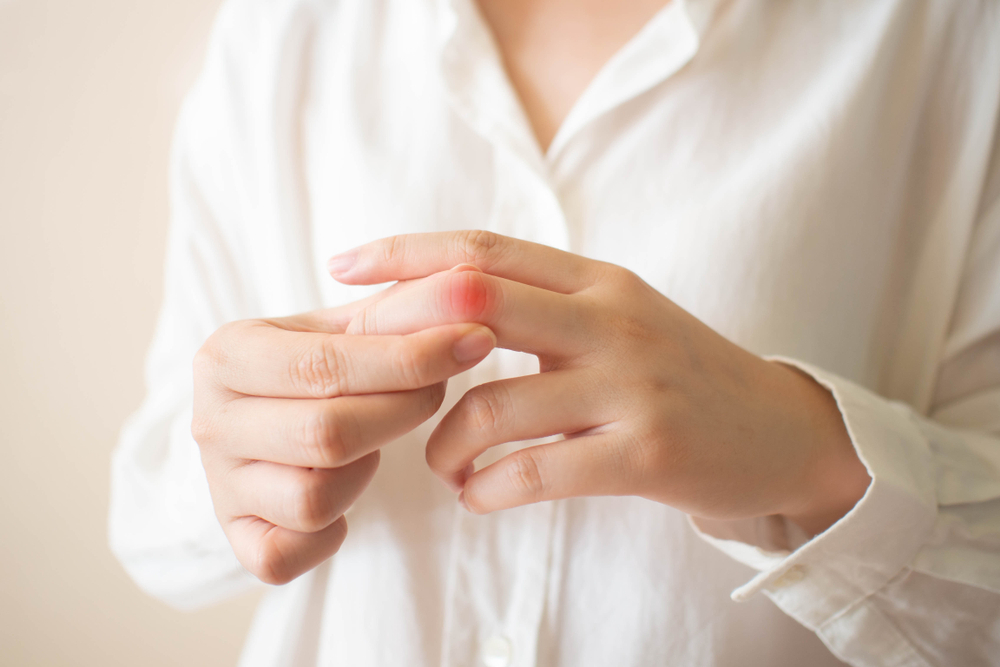Gout attacks can start suddenly and without warning. Oftentimes, they occur at night. You may go to bed feeling fine, but wake up with severe pain and extreme tenderness in your joints. You may even feel extreme pain when you touch your bed sheet.
Applying ice to the affected joint
A way to get rid of gout is to reduce your intake of purines, which can increase your body’s level of uric acid. These chemicals can be found in fatty meats and shellfish. You should also limit your intake of alcohol and fructose-sweetened beverages. Avoiding these foods and drinks will help you avoid future gout attacks. In addition, drinking more water will help your body maintain normal uric acid levels. Finally, cold compression, such as applying ice to the affected joint, can ease inflammation. Ice packs should be placed on the affected joint for 20 to 30 minutes, and kept elevated.
Another method of getting rid of gout is taking warm baths. Many gout attacks occur at night, which can cause people to have trouble sleeping. If you have gout, you might even be too tired to do much. A warm bath and a regular routine will make your gout attacks less painful.
Avoiding sugary foods
The first step in getting rid of gout is to cut down on your sugar intake. Sugar is a gout trigger because it raises the level of uric acid in your blood. Sugary foods and drinks contain large amounts of fructose, which increases the production of uric acid. This type of sugar is found in honey, brown sugar, high-fructose corn syrup, golden syrup, and various fruits and sweeteners. Sugar-sweetened drinks, including soda, are especially high in fructose. People who consume these kinds of drinks on a daily basis are twice as likely to develop gout than those who drink soda one or two times per month.
Avoiding alcohol is another way to get rid of gout. Alcohol can raise uric acid levels. The government recommends that adults limit their alcohol intake to 14 units per week, which is around six glasses of wine or pints of beer. Alcohol should be consumed in moderation, however; too much alcohol may increase the risk of gout.
Taking NSAIDs
In an effort to treat gout, patients should avoid foods and drinks that contain high amounts of fructose, which impairs the excretion of uric acid. Moderate intake of lean meat is recommended. In severe cases, combination therapy may be used to treat the condition.
The symptoms of gout usually peak within 24 hours and subside predictably over one to two weeks. Some patients experience a more chronic pain pattern. This is usually the case in those with tophi and polyarticular gout.
Taking allpurinol
Taking allopurinol is an urate-lowering medication. However, the drug has been controversial due to side effects. In a recent study, Lisa Stamp, professor of medicine at the University of Otago in Christchurch, and her colleagues conducted a dose escalation study on 183 patients with gout. They found that nearly half of the patients developed kidney damage and 44 percent developed severe gout.
Gout patients should note that it can take more than a year for symptoms to disappear. Some people may experience gout attacks every few months. If your symptoms persist, call your doctor. He or she may prescribe different treatment, or suggest a different type of medicine. Most cases, however, will clear up without treatment after a few weeks or months.
Drinking too much alcohol
It may sound counter-intuitive to some, but alcohol can actually contribute to gout. Alcohol raises uric acid levels in the blood and leads to crystals that form in the joints. This causes intense pain and inflammation. Several studies on the subject showed that the more alcohol someone drinks, the higher their risk of developing gout. It is therefore important to monitor alcohol intake to avoid gout.
If you suspect that you have gout, don’t drink alcohol or use any alcoholic products. The pain should go away within 3-10 days. If the pain persists, speak to your doctor to rule out other conditions and prescribe the right medication. The type of medication you receive will depend on your health history, your kidney function, and other factors. If you’re prone to gout, you should consult with your doctor before starting a new medication.
Taking fish oil
The first step in treating gout is to make sure that you are not taking a medication that could make your condition worse. You should consult a doctor if you feel that your current treatment is not working, or you are experiencing side effects you can’t tolerate. You can also discuss different supplements or changes to your medications with your doctor. There are many options available, including gout supplements and diet changes.
Fish oil supplements are known to help fight gout by lowering your urate level. However, they may cause some side effects, such as raising your uric acid level. It is also possible to take glucosamine, which is a type of substance derived from the outer shells of shellfish. However, there is no solid evidence that glucosamine will help treat gout.

